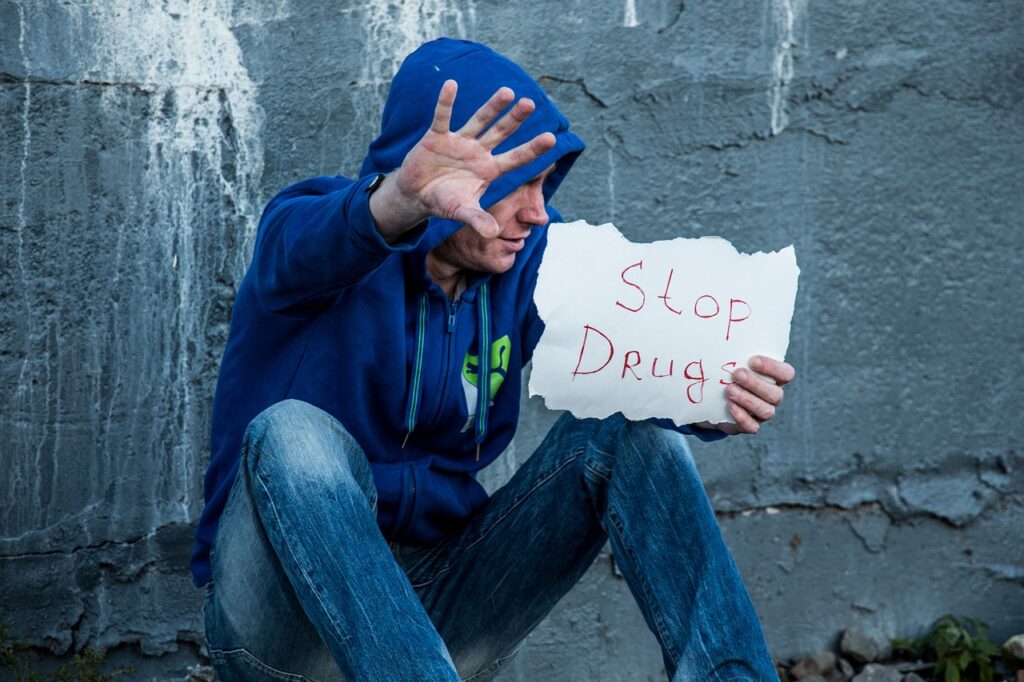
Drug dependency is an intricate and demanding issue that impacts countless people globally. Conquering drug addiction necessitates a comprehensive strategy that tackles the physical, mental, and social dimensions of the issue. This piece will delve into successful methods and tactics to aid individuals in breaking away from the addiction cycle and reclaiming authority over their lives.
Grasping the Concept of Drug Dependency
Before addressing strategies for conquering drug addiction, it is crucial to grasp the concept of drug addiction and its impact on individuals. Drug addiction, or substance use disorder, is a persistent condition marked by uncontrollable drug seeking, consumption, and cravings despite negative outcomes. It alters the brain’s structure and operation, resulting in modifications in behavior, thinking, and emotional control.
Consult with a qualified expert for assistance
Seeking professional help is a key component in the journey to overcome drug addiction. Treatment typically consists of a personalized blend of therapies, including detoxification, counseling, behavioral therapies, medication-assisted treatment, support groups, and aftercare planning. Collaborating with healthcare professionals like doctors, therapists, and addiction specialists can offer essential support and direction during the recovery process.
Cleansing the body of toxins
Detoxification is the process of clearing drugs from the body and managing withdrawal symptoms. It is an essential first step in overcoming drug addiction but should be done under medical supervision to ensure safety and effectiveness. Detox programs may involve medications to ease withdrawal symptoms and prevent complications
Engaging in Self-Care
Proper self-care is essential for individuals recovering from drug addiction. By prioritizing physical health through sufficient sleep, healthy eating, hydration, and regular exercise, one can enhance their overall well-being and better resist cravings. Moreover, cultivating self-compassion and forgiveness can assist in overcoming obstacles during the recovery process while maintaining a sense of optimism.
Creating Effective Coping Strategies
People facing drug addiction frequently resort to substances to deal with stress, trauma, mental health problems, or other difficulties. It is crucial to establish positive coping strategies to conquer drug addiction. This could include acquiring stress management skills, engaging in mindfulness and meditation, participating in consistent physical activity, exploring hobbies and passions, establishing a reliable support system, and undergoing therapy to tackle root problems.
psychotherapy and Counseling
Therapy and counseling are essential in tackling the psychological components of drug addiction. Cognitive-behavioral therapy (CBT) and other behavioral therapies assist in recognizing triggers, building coping mechanisms, and changing negative thought patterns. Counseling offers emotional support and direction during the journey to recovery.
Adopting Healthy Habits for a Better Lifestyle
Making healthy lifestyle changes can significantly impact recovery from drug addiction. Engaging in regular exercise, maintaining a balanced diet, getting an adequate amount of sleep, and avoiding stressors can improve overall well-being and reduce the risk of relapse. Healthy habits contribute to physical health and mental resilience.
Building a Robust support system
Having a strong support system is essential for long-term recovery from drug addiction. Surrounding yourself with positive influences such as family members, friends, or mentors who encourage sobriety can provide invaluable support during challenging times. Open communication and honest discussions about struggles are key components of a supportive network.
Preventing the Activation of Triggers
In order to sustain sobriety, it is crucial to identify and avoid triggers that could potentially result in a relapse. Triggers can manifest in various forms, including individuals, locations, emotions, situations, or even specific thoughts that stimulate cravings for drugs. By acknowledging and understanding these triggers, individuals can devise effective strategies to cope with them, such as utilizing distraction techniques, practicing relaxation exercises, seeking support from others, or engaging in alternative activities.
Exploring the Quest for Meaning and Purpose
Embracing meaningful activities that bring joy, fulfillment, and purpose can greatly enhance the process of recovering from drug addiction. Whether it involves pursuing personal interests, dedicating time to volunteer in the community, or setting goals for personal and professional development, these endeavors can instill a sense of accomplishment and self-value that extends beyond reliance on substances. By finding purpose beyond drug use, individuals can cultivate a positive outlook on life and reinforce their motivation to maintain sobriety.
in conclusion, Overcoming drug addiction is a tough yet attainable objective with commitment, persistence, expert assistance, encouraging connections, and healthy lifestyle selections. By tackling the physical, psychological, and social dimensions of addiction through thorough treatment strategies, individuals can liberate themselves from substance reliance and begin a journey toward enduring recovery and well-being.
